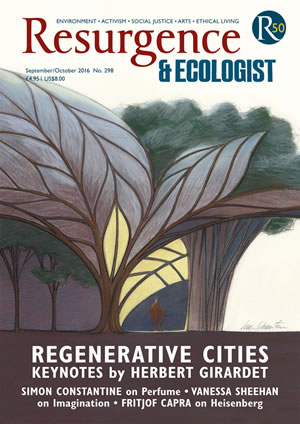How can we save the world? How can we address the climate crisis? How can we nurture biodiversity and prevent the ‘sixth extinction’? How can we improve people’s lives, end poverty and ensure human dignity for all? How can we address the root causes of desperate migration? How, in sum, can we bring into being a better, fairer, more harmonious and more peaceful world – a world in which we and all the species and ecosystems that depend on us can flourish?
Alex Evans has been responsible for a lot of detailed policy thinking and action to address these and related questions over the past 15 years or more. He has been at the heart of various governments, international processes and campaigns instrumental in some of the undoubted gains made on aid, development and climate-related causes since the turn of this century.
Throughout, Alex – with whom my organisation has worked closely – has served as that rare breed: on the one hand, a deeply knowledgeable policy expert; on the other, someone gifted with an acute political and strategic sense of how to get things done through like-minded coalitions of governments, civil society and the private sector.
The resulting authorial voice in Eden 2.0 draws compellingly on these two perspectives – policy and political strategy – while also opening up revealingly on a third, about which Alex in his public dealings is typically discreet: his personal faith. For while he wears his devotion lightly in the policy sphere, he is heavily inspired in his work by a deeply felt Christian faith and spirituality. Eden 2.0 also draws on his perspectives from five years lived in Ethiopia. The questions of sustainable development, global equity and the impacts of climate change are not abstract concepts when viewed from Addis Ababa.
Eden 2.0 speaks to this experience, combining intellectual rigour and moral clarity. The central argument is that humanity needs, fast, to find a myth – or a set of myths – capable of transcending our current predicament and inspiring us to a radically new course. Dry policy alone will not do it: we need to be inspired to form a new global movement, akin to the great campaigns of the past – slavery, civil rights – to bring about the transition so urgently needed.
This transformative myth would unify rather than divide us, as well as providing the world with the structure and breadth of imaginative vision needed to enable us to conceive a clear idea of what would be required to deliver a sense of “a larger us”, “a longer now”, “a better good life”, “redemption” and “restoration”.
For the author, the Christian myth – with its focus on ‘the everlasting covenant’, Jubilee, the Sabbath (including its ecological sense of leaving the land to rest and recover), and its concepts of redemption and restoration – is the one that speaks most closely (as a reading of Pope Francis’ Encyclical on climate change, Laudato si’, would attest). But there is no evangelising here: rather, an openness to all or any of the other myths and traditions by which others might be inspired.
Alex concludes with a set of bracing policy prescriptions, ranging across trade, finance, fossil fuel subsidy reform, climate action, and the like. He also sets out 10 personal actions that would make a tangible difference, including activism, lifestyle changes, discussion with family and friends, and a special effort to reach those not (yet) moved to address the questions of the world from a perspective of faith and myth.
In summary, Eden 2.0 is a deeply worthwhile and stimulating short read; a vision and a manifesto for our times, delivered by an unusually thoughtful and committed intellectual and activist at the heart of things.







